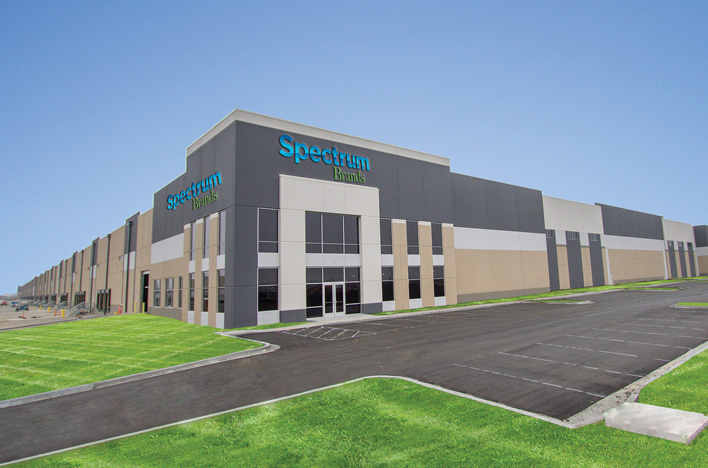The availability of Kansas City’s industrial space kept pace with strong demand in 2016, and interest in additional space shows no signs of abating this year.
Greater Kansas City delivered a record 9 million square feet of speculative industrial space in 2016 and is anticipated to deliver an additional 7 million square feet in 2017.
“In 2016, that 9 million square feet of industrial space was all over the region and included mostly big box distribution space,” said Gutierrez, who oversees a territory across 18 counties in Kansas and Missouri.
Most of the industrial space was built on speculation.
Excel Industries, a manufacturer of consumer and commercial mowing equipment, announced in 2015 that it would open a facility at Logistics Park Kansas City, a 1,700-acre master-planned distribution and warehouse development located in the south Johnson County city of Edgarton. The company’s worksite includes warehousing and distribution space, and there are plans to manufacture an existing
product line.
Other manufacturers took additional “build to suit” space that was on the market and customized it to meet specific manufacturing needs. Spectrum Brands Hardware and Home Improvement, for example, will consolidate its distribution facilities in North Carolina and California, bringing operations to a 927,000-square-foot distribution building at Logistics Park.
“Lee’s Summit is on the verge of putting up industrial space on spec built by developers,” said Gutierrez. “Developers are taking a risk
to build.”
Advantage Kansas City
The calculated risk appears to be weighted in the developers’ favor with healthy demand in the marketplace. Ongoing plans for adding more industrial space suggest a robust economic outlook in 2017 for Greater Kansas City.
“Supply has met demand,” said Gutierrez. “More industrial space is under construction this year. It gets leased even before the buildings are finished.”
Existing industrial space with more in the pipeline bodes well for the local economy.
“It gives Kansas City an advantage over other cities such as Indianapolis, Columbus, Memphis and Dallas,” said Gutierrez. “Kansas City also has the transportation infrastructure and workforce to support these distribution companies. We have a great Midwest work ethic. Nearly 85 percent of the U.S. population can be reached by truck from Kansas City within two days. The city has four modes of transportation for distribution: interstate, rail, air and barge.”
Appealing Mix
Kansas City’s reputation as a transportation hub and capable workforce isn’t its only asset.
“Kansas City has a competitive business climate and diverse economy,” said Gutierrez. “We’re not subject to the ups and downs of the coasts. Our economy includes auto manufacturing, warehouse distribution and other manufacturing.”
As companies across the U.S. make
critical decisions on where to allot resources and establish distribution,
Kansas City’s existing and upcoming
industrial space inventory offers much-needed capacity. The combination of space, transportation and capable workforce improves the prospects for firms to select Kansas City for its distribution and warehouse operations.
“More than 7 million square feet of industrial space is planned for 2017 with room to grow in 2018 and 2019,” said Gutierrez. “There are commitments by developers to put more buildings because tenants need space.”


